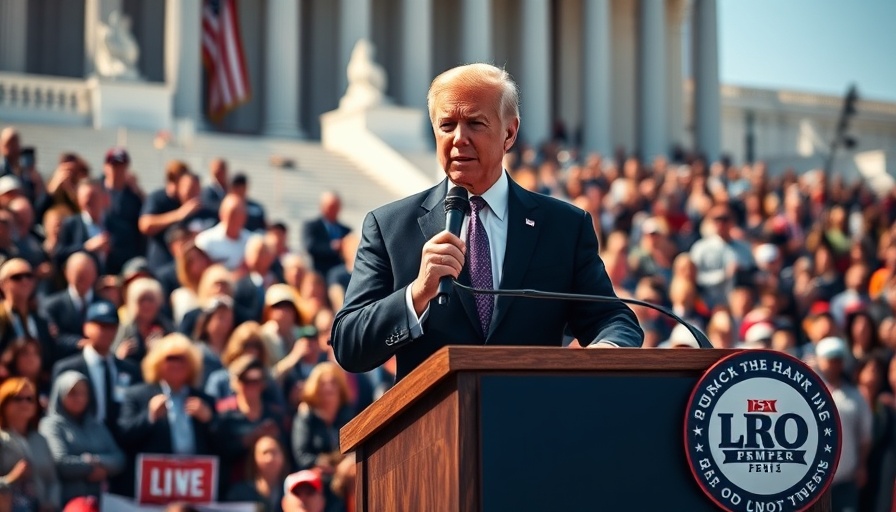
NBA President Calls for Preservation of Truth in History
In a powerful statement that echoes the concerns of many Americans, Wiley S. Adams, President of the National Bar Association (NBA), has condemned the Trump administration’s recent directive to remove key African American artifacts from the Smithsonian National Museum of African American History and Culture. This act, according to Adams, represents a direct threat not only to the truth but also to the ongoing journey of justice for Black Americans.
Cultural Erasure: More Than Just Artifacts
Adams has voiced deep outrage and concern over this act, labeling it as more than mere bureaucratic maneuvering. He articulates a sentiment shared by many historians and activists—that this move constitutes a systematic assault on the dignity of Black Americans and an attempt to revise the nation's historical narrative. Museums serve as vital spaces for cultural remembrance and learning, and removing artifacts undermines the accountability necessary for a democracy that honors its diverse past.
The Interplay of History and Democracy
The NBA President highlighted the broader implications of this directive, linking it to an erosion of democratic values. At a time when free expression and institutional independence are being challenged, the removal of historical artifacts signals a dangerous precedent. Adams warns that we must recognize how such actions contribute to a historical amnesia that effaces the contributions of Black Americans. This erosion of collective memory can lead to distorted public understandings of justice, equality, and freedom.
Demanding Restoration: A Call to Action
Adams does not only condemn the action; he actively calls for a restoration of the artifacts in question. He emphasizes the importance of collective advocacy, urging citizens to demand the protection of historical truths that shape our national identity. According to him, the narrative of America, with all its complexities and contradictions, must be preserved in its entirety rather than selectively edited to fit a particular political agenda.
Historical Context: The Fight Against Erasure
Wiley S. Adams’ statement resonates in a broader historical context where efforts have been made to erase or marginalize crucial aspects of African American history. From the denial of civil rights during the Jim Crow era to the present-day attempts to rewrite history in educational materials, the struggle for recognition and equality continues. This ongoing battle necessitates vigilance and active participation from every segment of society.
The Role of Institutions in Upholding Democracy
Museums are not merely repositories of artifacts; they are institutions that uphold democracy by fostering understanding and social responsibility. The Smithsonian Museum, housing memories of struggle and progress, plays a critical role in educating the public about the nation’s complex history. Adams’ assertion—"History cannot be hidden"—serves as a reminder of the importance of confronting uncomfortable truths. Ensuring that diverse narratives are told fosters a culture of inclusivity and equity necessary for collective healing and growth.
A Vision for the Future: Empowering New Generations
Moving forward, Adams’ passionate plea raises a crucial question: how can we empower younger generations to care about their history? By emphasizing the legacy of Black Americans and recognizing their contributions, young people can gain a more comprehensive understanding of social justice and democracy. Educational initiatives and community engagement can facilitate meaningful discourse, rekindling the spirit of collective memory in an era where commodification of history is unfortunately commonplace.
Conclusion: The Responsibility of Our Time
Adams’ statement is a clarion call for action—to ensure that the stories, struggles, and triumphs of Black Americans are not relegated to shadows. The public's role in demanding accountability and preserving the truth of history is more critical now than ever. We must engage in dialogue and advocate for educational reforms that honor our diverse past, fostering a society that champions truth, justice, and the values enshrined within our Constitution. It is time for us to act, to ensure that history's lessons are neither forgotten nor erased.
 Add Row
Add Row  Add
Add 




Write A Comment